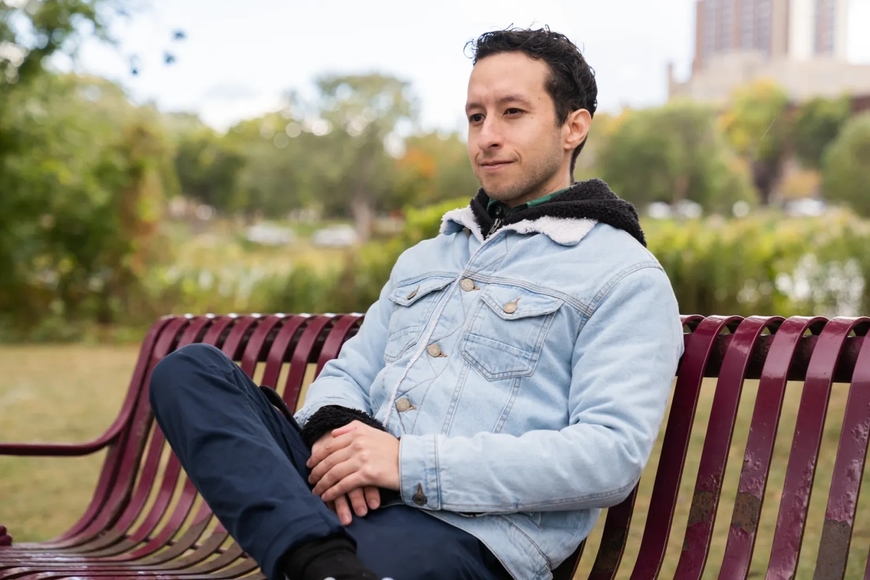Bringing Victim-Centered Perspectives to International Development
The Human Rights Program believes strongly in the importance of integrating professional experience with academic knowledge in the field of human rights, making internships a main requirement of the Master of Human Rights (MHR) degree program. Many students do amazing work with their host organizations and gain valuable field experience to supplement their human rights coursework. In this Q&A series, we interview our students to learn more about their experiences. In the third Q&A of the series, we are joined by Guillermo Gorrin Castellano, a second-year MHR student who interned with the American Bar Association’s Rule of Law Initiative.
Human Rights Program (HRP): What human rights experience did you have prior to this internship, and what are your substantive interests in human rights?
Guillermo Gorrin Castellano (GGC): I am an international student from Venezuela, and being an international student I had a lot of opportunities to engage in human rights work. Initially, I worked in Swaziland with patients with HIV/AIDS, managing a land plot to grow crops so people could be fed and their antiretroviral medications would be effective. During that time, I also worked in Mozambique as an interpreter helping education efforts in landmine removal. That work inspired me to intersect issues of international security and conflict with a human rights perspective—and so, in my professional paper, I use Mozambique as well as Colombia as examples of good practices of landmine removal and international development in post-conflict situations. My goal with the paper is to expand on the idea that more economically developed countries have an obligation to bring experts into conflict areas so victims can get more advanced treatments and victims’ stories can be amplified in research.
HRP: Why did you decide to work with the ABA’s Rule of Law Initiative?
GGC: I have a background in immigration law. In 2016, I interned with The Advocates for Human Rights in the Refugee and Immigrant Program, where I learned how the United States deals with immigration from a humanitarian standpoint, meaning asylees, refugees, vulnerable groups, and so on. I saw the opportunity to join the ABA as a way to connect my legal training into something that’s more conducive to research-oriented development work. I’m interested in bringing in more victim-informed and trauma-informed approaches to development, conflict, and conflict resolution, where security and technical frames are so dominant. Issues like combating human trafficking and wildlife trafficking, which the ABA works on, offer opportunities for this new approach because they are normally dealt with from a security or law enforcement standpoint, so the ABA was a great opportunity for me to explore how you can do meaningful legal work even if you’re not an attorney.
HRP: Please describe your role in the organization and some of the major projects you completed.
GGC: I worked on a lot of projects with the ABA regarding victim-informed approaches to human trafficking and wildlife trafficking in Latin America. In countries like Colombia and Peru, I conducted research to help train police officers, judges, and attorneys in practices that incorporate the perspective of trafficking victims and treat those people as survivors rather than criminals. Most of these people come from vulnerable groups, such as Indigenous people, women migrants from Venezuela, transgender women, and minors. The idea is to build capacity so they can be identified, and then use restorative practices that allow them to find some sense of justice while carrying on with their lives. One of the main things I did in this research was use Gender Equity and Social Inclusion (GESI) Analysis, which allows us to identify the most vulnerable communities in an area and tailor our activities to those communities’ needs rather than unintentionally neglect them. GESI Analysis like this is now the bread and butter of U.S. development projects abroad.
HRP: How does this experience complement your human rights coursework?
GGC: In the MHR, we get significant theoretical training. But you cannot understand how development or human rights works unless you work at a development agency or a human rights organization. What the ABA gave me is some insight into the organizational challenges beyond the theory. For example, there are issues of budgeting, and there are a million meetings you have to conduct with people from the organization and country offices before you can get a project finished. I think it’s important to see this professional aspect beyond the academic aspect because if you are going to be a practitioner, you have to understand how organizations face their challenges. Only real-world field experience will allow you to identify that.
HRP: How has this internship shaped your future plans?
GGC: Right now, I am considering going into a Ph.D. program where I want to incorporate what I’ve learned in the MHR and what I’ve learned professionally into meaningful research on landmines and other humanitarian concerns. In addition to that, I’m considering working in the field to use what I’ve learned about trauma-informed and victim-informed work and adapt it to my interest in open source intelligence. Open source intelligence, right now, is dominated by technical experts, but we also need people who are trained in trauma and victim-informed perspectives so they know what to look for beyond just technical and spatial facts. My goal would be to get some professional experience in that field and then transition to a Ph.D. program and become an academic so I can help train the next generation of human rights-informed open source intelligence professionals.



